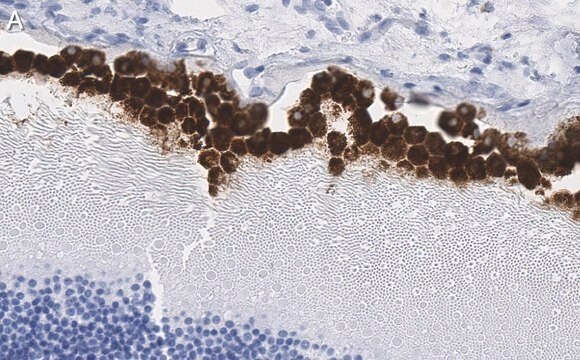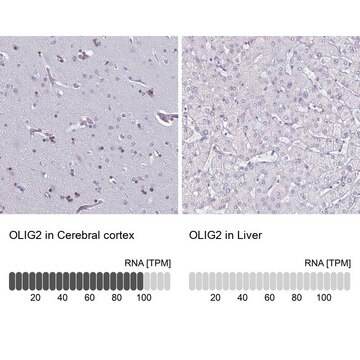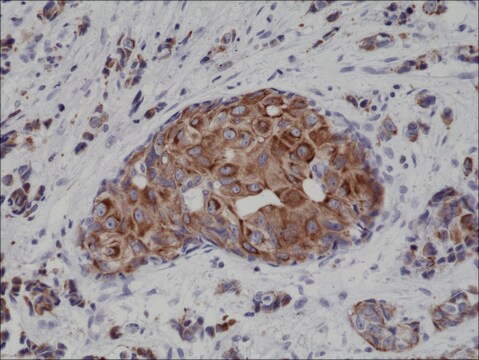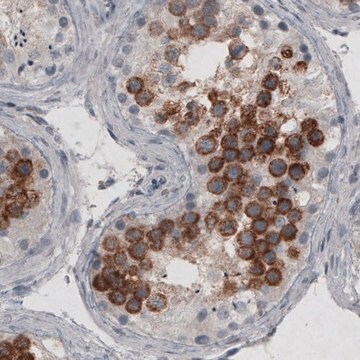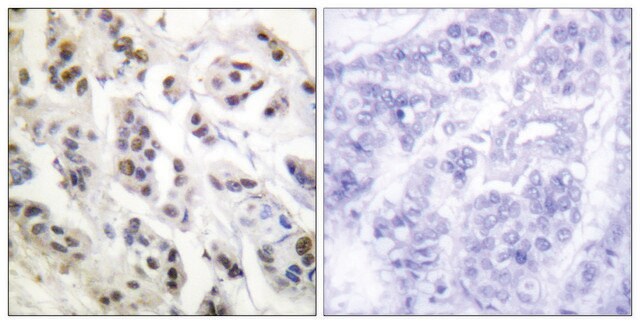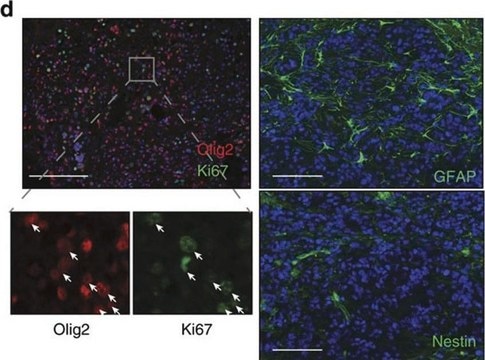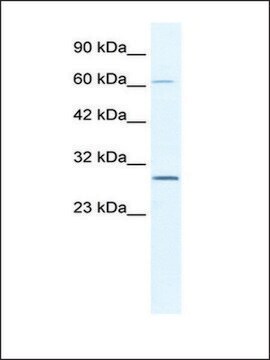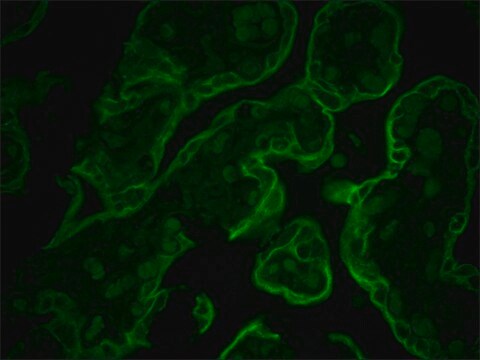추천 제품
생물학적 소스
mouse
Quality Level
100
500
결합
unconjugated
항체 형태
culture supernatant
항체 생산 유형
primary antibodies
클론
35betaH11, monoclonal
설명
For In Vitro Diagnostic Use in Select Regions (See Chart)
형태
buffered aqueous solution
종 반응성
human
포장
vial of 0.1 mL concentrate (335M-94)
vial of 0.5 mL concentrate (335M-95)
bottle of 1.0 mL predilute (335M-97)
vial of 1.0 mL concentrate (335M-96)
bottle of 7.0 mL predilute (335M-98)
제조업체/상표
Cell Marque™
기술
immunohistochemistry (formalin-fixed, paraffin-embedded sections): 1:100-1:500
동형
IgMκ
제어
prostate
배송 상태
wet ice
저장 온도
2-8°C
시각화
cytoplasmic
유전자 정보
human ... KRT1(3848)
일반 설명
Anti-Cytokeratin 8 stains most non-squamous epithelial tumors, squamous tumors are negative for this antibody as a rule. This antibody stains adenocarcinomas of the breast, ovary, gastrointestinal tract, thyroid, pancreas, bile duct, and salivary glands. This antibody does not react with skeletal muscle or nerve cells.
품질
 IVD |  IVD |  IVD |  RUO |
결합
Cytokeratin (35betaH11) Positive Control Slides, Product No. 335S, are available for immunohistochemistry (formalin-fixed, paraffin-embedded sections).
물리적 형태
Solution in Tris Buffer, pH 7.3-7.7, with 1% BSA and <0.1% Sodium Azide
제조 메모
Download the IFU specific to your product lot and formatNote: This requires a keycode which can be found on your packaging or product label.
기타 정보
For Technical Service please contact: 800-665-7284 or email: service@cellmarque.com
법적 정보
Cell Marque is a trademark of Merck KGaA, Darmstadt, Germany
적합한 제품을 찾을 수 없으신가요?
당사의 제품 선택기 도구.을(를) 시도해 보세요.
시험 성적서(COA)
제품의 로트/배치 번호를 입력하여 시험 성적서(COA)을 검색하십시오. 로트 및 배치 번호는 제품 라벨에 있는 ‘로트’ 또는 ‘배치’라는 용어 뒤에서 찾을 수 있습니다.
A C Knapp et al.
Cell, 59(1), 67-79 (1989-10-06)
Intermediate filaments (IFs) of the cytokeratin (CK) type are cytoskeletal elements typical for epithelial differentiation. However, in diverse transformed culture lines of non-epithelial origin, rare cells emerge spontaneously, which synthesize, in addition to their vimentin IFs, CKs 8 and 18.
R Eichner et al.
The Journal of cell biology, 98(4), 1388-1396 (1984-04-01)
Human epidermal keratinocytes express under various growth conditions a total of at least nine keratins that can be divided into two subfamilies. Subfamily A comprises 40-, 46-, 48-, 50-/50'-, and 56.5-kilodalton (kd) keratins which are relatively acidic (pI less than
A M Gown et al.
American journal of clinical pathology, 84(4), 413-424 (1985-10-01)
A panel of monoclonal antibodies to human intermediate filament proteins was tested on an unselected series of 246 neoplasms. The antibody panel includes two different anti-cytokeratin antibodies, an anti-vimentin antibody, and an anti-neurofilament antibody (Gown and Vogel, Am J Pathol
T T Sun et al.
The Journal of investigative dermatology, 81(1 Suppl), 109s-115s (1983-07-01)
Keratins are a group of water-insoluble proteins (molecular weight range 40-70 K) that form 10-nm tonofilaments in a wide variety of epithelial cells. The subunit composition of the keratin filaments varies with cell type, period of embryonic development, stage of
H Battifora
The American journal of surgical pathology, 12 Suppl 1, 24-42 (1988-01-01)
The past few years have seen great progress in our knowledge of the biology and the chemistry of intermediate filaments and other filamentous proteins. This has translated into the development of antibodies that, together with new, highly sensitive immunohistochemical methods
자사의 과학자팀은 생명 과학, 재료 과학, 화학 합성, 크로마토그래피, 분석 및 기타 많은 영역을 포함한 모든 과학 분야에 경험이 있습니다..
고객지원팀으로 연락바랍니다.